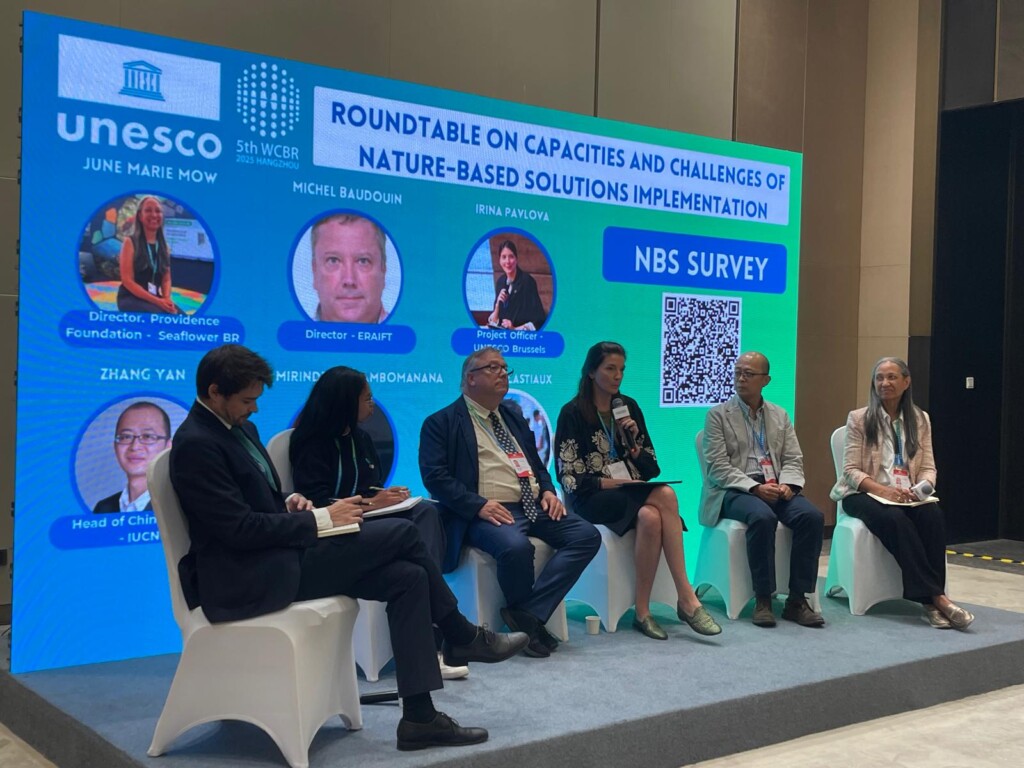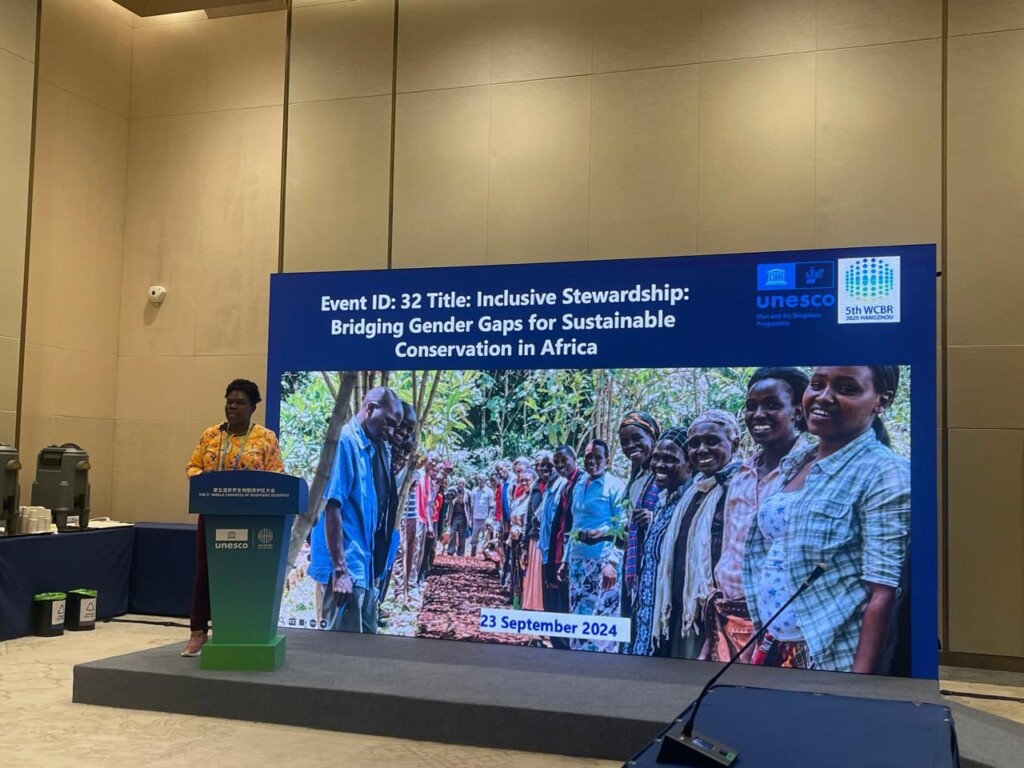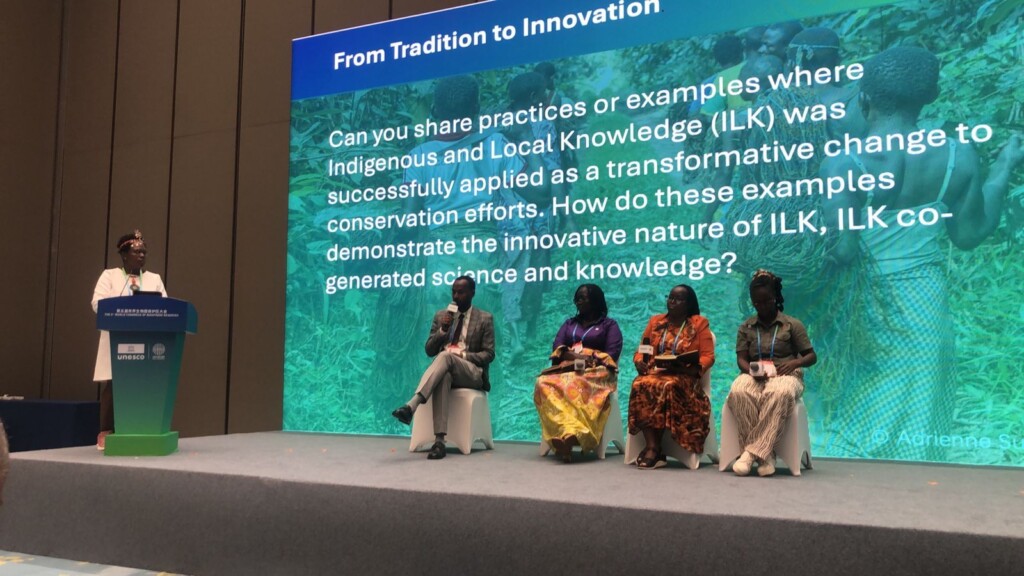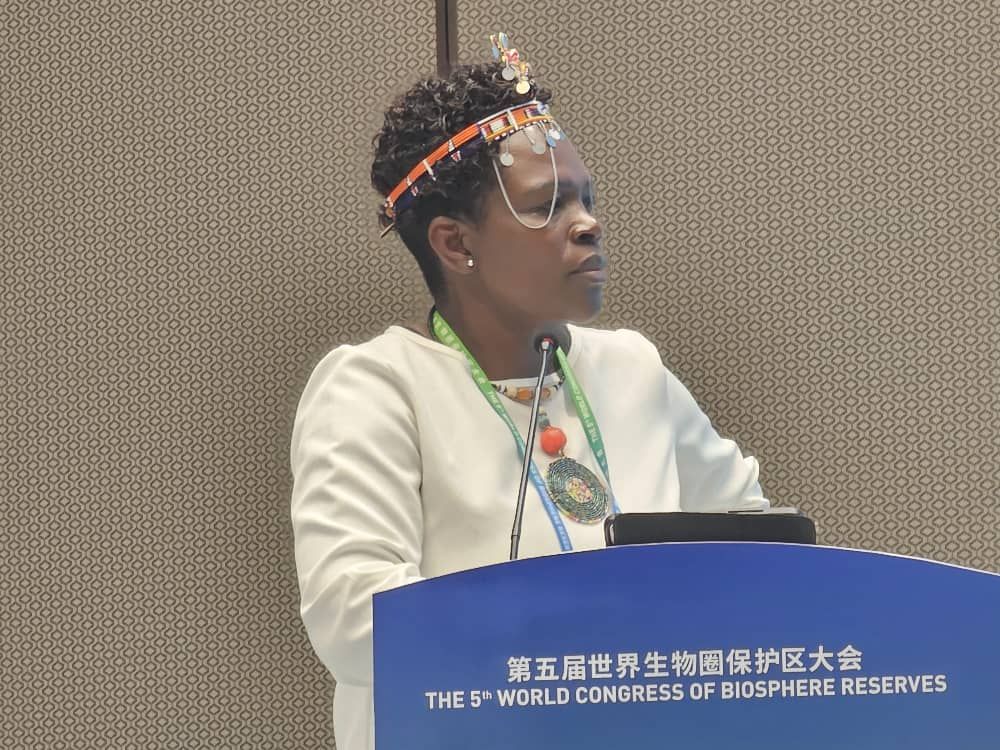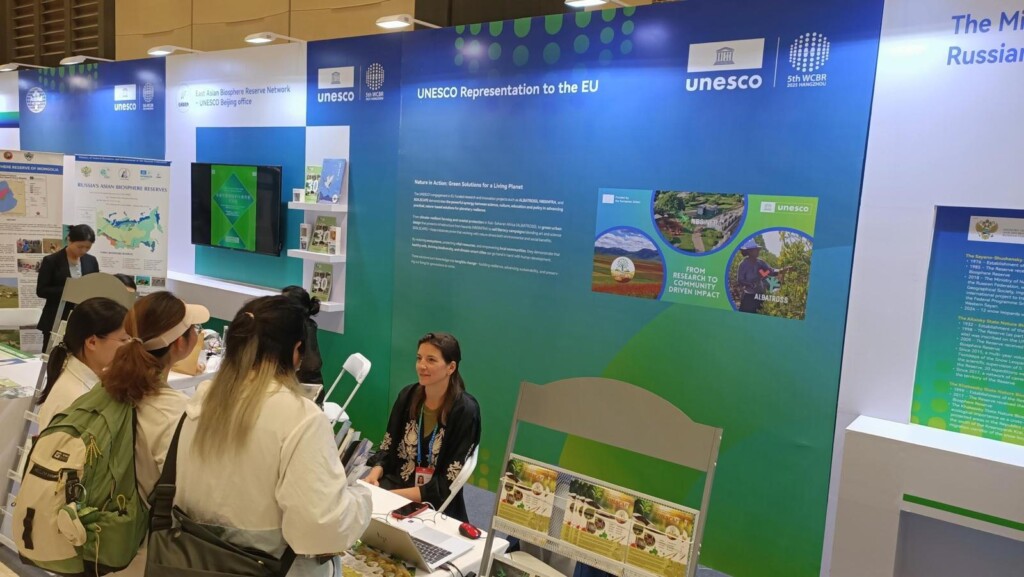Fruitful participation at the 5th World Congress of Biosphere Reserves, Hangzhou, China
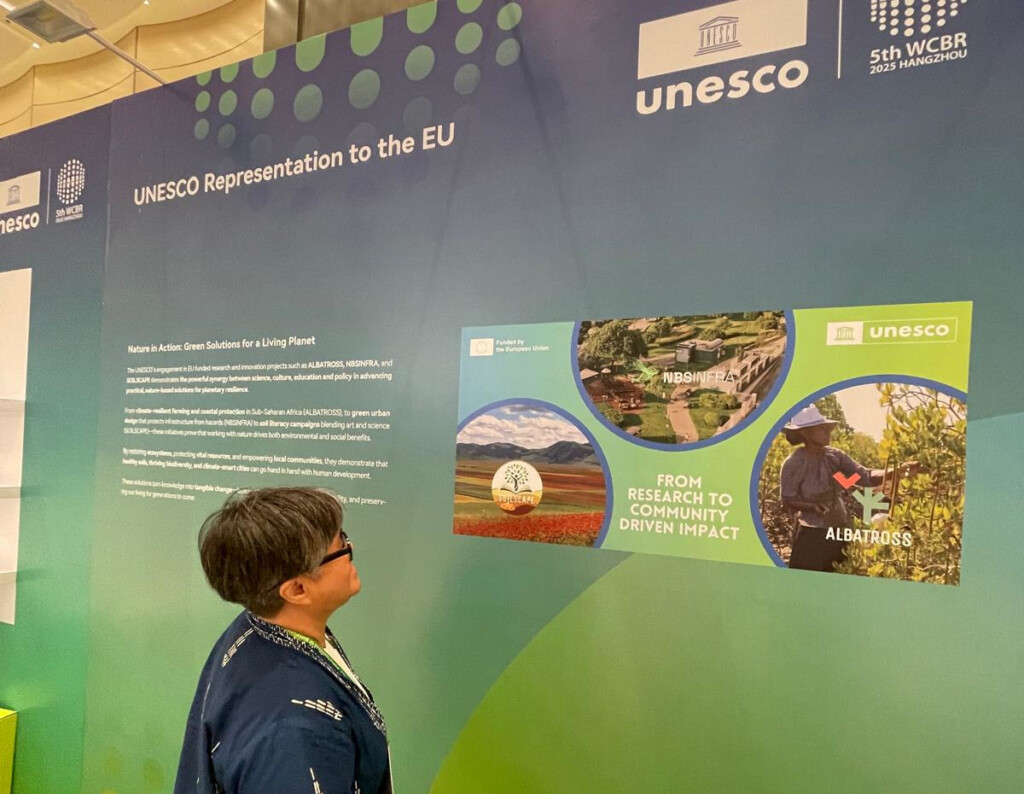
On 22-26 September 2025, the ALBATROSS partners Irina Pavlova and Mary Nyasimi, from UNESCO Brussels and Nairobi offices respectively, participated in the UNESCO 5th World Congress of Biosphere Reserves, held in Hangzhou, China. This event is organised every ten years, to evaluate progress, share experiences, and set future directions for the Man and the Biosphere (MAB) Programme. The Programme, established in 1971, promotes the sustainable management of biodiversity and human-nature interactions.
Irina participated in the congress as a representative of UNESCO Europe, standing in for different EU-funded projects in which UNESCO is participating, including ALBATROSS. Among others, she shared the experiences of ALBATROSS’s implementation and support of nature-based solutions in a roundtable on capacities and challenges of Nature based solutions implementation. During her intervention, Irina promoted interaction with participants through an interactive quiz on NBS.
Mary’s participation was linked to other aspects in which ALBATROSS is also focusing: on the one hand, on advancing local and Indigenous knowledge for biodiversity conservation, and, on the other, on bridging gender gaps for sustainable conservation in Africa. For the former, she coordinated a panel discussion bringing together experts from South Africa, Ethiopia, Ghana, and Zimbabwe. The session highlighted the critical role of Indigenous and local communities in safeguarding biodiversity, promoting sustainable livelihoods, and informing adaptive conservation strategies. “It was inspiring to see diverse perspectives converge, sharing lessons and innovative approaches that strengthen ecosystem stewardship across the continent”, she stated.
Besides, Mary organised a side event titled “Inclusive Stewardship: Bridging Gender Gaps for Sustainable Conservation in Africa.” This session emphasised that gender equality and social inclusion are not optional—they are essential pillars for effective and lasting conservation in Africa. By linking social equity to environmental sustainability, the event underscores that transformative conservation outcomes depend on empowering underrepresented voices and integrating inclusive approaches into policies, governance, and practice. This will foster more equitable, resilient, and sustainable conservation efforts across Africa.
Mary was also a panellist at a side event on “Pollinators and people: beekeeping, biodiversity, and women’s leadership in biosphere reserves” that dialogued on how pollinator conservation can support restoration, gender equity, and sustainable development goals in Africa’s Biosphere Reserves. The dialogue shed light on the leadership role of women in pollinator-related livelihoods, conservation and restoration, and the opportunities for economic and social women empowerment through beekeeping.
